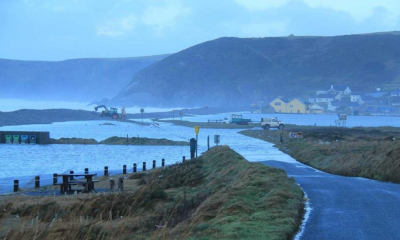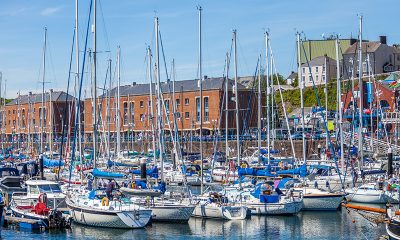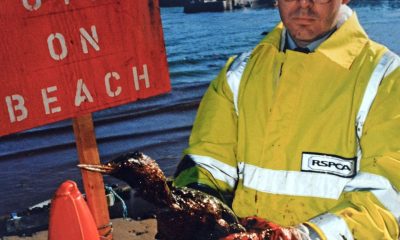News
Suspended sentence for death by careless driving pensioner
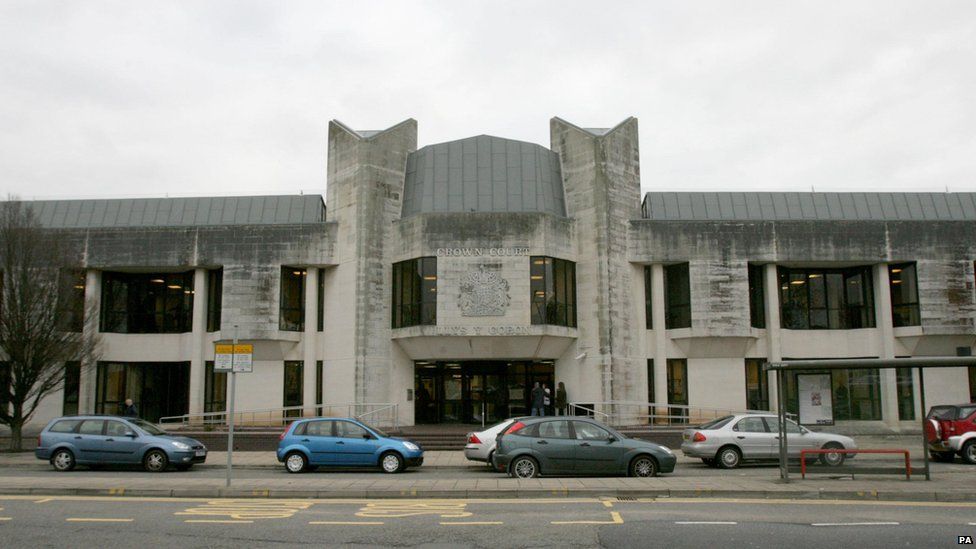
A PEMBROKE pensioner whose careless driving caused the death of a driving instructor on the verge of beating cancer has this afternoon (Apr 9) received a suspended prison sentence.
Jean Williams, aged 84, overtook a tractor so slowly she entered an uphill bend still on the wrong side of the road.
Motorcyclist Vanessa McAloon, aged 47, who was approaching from the other way along the A4075 at Penny Bridge, “had no where to go” and lost control after braking hard on her bike.
Mrs McAloon, a qualified driving instructor, fell off and slid into Williams’ Vauxhall Corsa.
Her partner James, who was riding behind her, had no choice but to ride over his own wife.
Swansea Crown Court heard that Mrs McAloon, of Bosherston, had only one more session of chemotherapy to go and was making plans for the future, confident that she was beating the disease.
Williams, of Tudor House, Main Street, was convicted of causing death by careless driving after a trial.
Today, Judge Geraint Walters jailed her for 12 months, suspended for two years, and banned her from driving for two years.
Judge Walters said that on occasions driving too slowly could produce as much of a danger as those who drove at excessive speed.
Williams could have completed the overtaking only if she had driven with determination and purpose. But she had started the maneuvre too late and then driven too slowly.
Helen Randall, prosecuting, read a statement to the court written by Mrs McAloon’s daughter Rebecca Brockhart, who said the family had been hugely relieved to learn that her mother was beating cancer after surgery and chemotherapy.
She said she could no longer bear living in Pembrokeshire because everywhere she went reminded her of her mother.
“Without her we feel empty. I cannot describe the devastation,” she said.
“James saw the accident and was himself injured. He lost his wife, his business and his home. His bungalow has been repossessed and his business has gone bankrupt,” she wrote.
Judge Walters said both Mrs McAloon and her husband had enjoyed motor cycling and on November 27, 2016, had decided to ‘take the scenic way home’ so they could enjoy a glorious, sunny, Autumn day.
“Neither could have imagined how it would all end. Neither seemed to have a care in the world. They were simply enjoying what they enjoyed doing together.”
He told Williams: “They rounded a bend to find your car wholly or largely on the wrong side of the road.
“Putting it simply, she had nowhere to go.
“When her husband rounded the same bend he, too, was confronted with an impossible situation. He has to live with the horror of being unable to do anything except ride over his own wife as she lay in the carriageway.
“The word tragedy comes nowhere close to describing the outcome of your driving.”
Judge Walters said he accepted that Williams had led a blameless life but people had to appreciate that as they got older then everything took longer and that, in her case, included overtaking a tractor.
Jim Davis, Williams’ barrister, said she had not driven since the accident and had no intention of ever driving again.
Education
Leadership questions raised after Milford Haven school stabbing
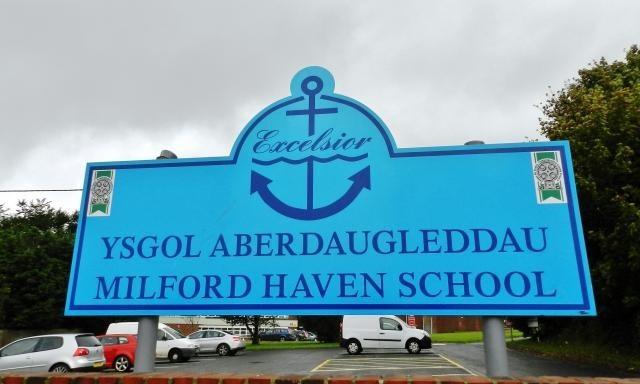
Headteacher absent as council confirms support plan and oversight visits
CONCERNS have been raised about leadership and staffing at Milford Haven Comprehensive School following last week’s alleged stabbing of a teacher on site.
The Herald has been contacted by a member of teaching staff who described the school as “rudderless” in the days after the incident and questioned whether enough senior management support was in place.
The teacher, who asked not to be named, said staff morale had been affected and claimed there had been little direct communication from the headteacher, who has been absent due to injury.
They said: “We teachers are all saying the same thing. The school feels rudderless. This is a time when a leader needs to step up and let us know they’re still in charge and concerned.”
Concerns were also raised about administrative capacity, with the business manager role reportedly unfilled.
A spokesperson for Pembrokeshire County Council confirmed the current arrangements.
The council said headteacher Ms C. A. Morris remains in post but is currently absent, with deputy headteacher Mr Daryl John deputising.
It added that the business manager position is a matter for the school.
Additional support has been put in place for staff and pupils, including the Education Psychology team on site, access to counselling services and an increased presence from the School Police Liaison Officer throughout the week.
The authority also said the Director of Education is in daily contact with the deputy head.
In terms of oversight, the council confirmed Steven Richards-Downes, Director of Education, has visited the school 35 times and met staff on two occasions. Cllr Guy Woodham, Cabinet Member for Education and Welsh Language, has made eight visits since taking up the role in May 2019.
Last week’s incident saw a 15-year-old male charged grievous bodily harm with intent and possession of a bladed article.
At an initial hearing it was explained that the teacher, who was named as Vicky Williams, has since been discharged from hospital.
The prosecution explained to the court that the boy attacked Williams with a kitchen knife.
The case has been sent to Swansea Crown Court.
Community
Facebook ‘news’ site targeting Herald editor collapses after community backlash

Page disappears hours after offensive post sparks outrage across Pembrokeshire
A FACEBOOK page that presented itself as a local news outlet but repeatedly targeted The Pembrokeshire Herald and its editor has disappeared following a wave of public criticism from residents and charity workers.

The page, operating most recently under the name Clear Line News, published a lengthy post on Sunday (Feb 9) describing Pembrokeshire in highly offensive terms and mocking community groups, volunteers and local reporting.
Within hours, the post triggered widespread condemnation online.
By the end of the day, users reported the page had changed its name to “The Devil’s Feed” before becoming unavailable altogether.
Criticism arose after Marty Jones, PR manager for Sandy Bear Children’s Bereavement Charity, shared a screenshot of the post on his personal Facebook page and questioned its tone.
Dozens of residents replied, describing the language as “vile”, “nasty” and “beyond comprehension”.
Several said they had been blocked by the page after challenging it.
Others expressed particular anger at comments they said were directed towards a bereaved mother connected to a local fundraiser.
One commenter wrote: “How they can speak to a bereaved mother that way is beyond my comprehension.”
Name change and closure
As criticism mounted, users reported the page had been renamed before disappearing completely.
By Monday morning, it could no longer be accessed.
Earlier identity
The page’s history has also drawn scrutiny.
Before operating as Clear Line News, the account previously used the name “Dyfed-Powys Neighbourhood Watch”, presenting itself in a way that some residents believed suggested an official or community safety organisation.

A company using a similar name — GWARCHOD Y GYMDOGAETH DYFED-POWYS NEIGHBOURHOOD WATCH LIMITED — was incorporated on Nov 4, 2024, according to Companies House records.
The filing listed the director as Ajay Owen, recorded as “Lord Ajay Owen”, with a correspondence address in Llanfyrnach.
The company’s stated activities included public relations, communications and public order and safety functions.
Companies House records show the company was dissolved on Feb 18, 2025.
During the period when the page appeared to carry Neighbourhood Watch-style branding, it accumulated more than 1,000 followers, including engagement from public bodies such as Mid and West Wales Fire and Rescue Service.
After several rebrands, the page later emerged as Clear Line News in late 2025, adopting the look of a local news site.
Much of its content, however, focused on opinion pieces and attacks on local institutions and individuals.
Distancing statement
Following Sunday’s controversy, Mr Owen posted a statement saying he previously owned the page but no longer controlled it and had requested its removal.
Shortly afterwards, the account disappeared.
He told The Herald in December that he had sold the page for £10 within days of relaunching it under the new name. The purported new owner could not be contacted and no independent details confirming the transfer were provided.
Community response
While Pembrokeshire residents accept robust debate and scrutiny, many said they rejected what they saw as inflammatory or abusive social media content masquerading as journalism.
One resident wrote: “We should be grateful for where we live and try to make it better, not tear it down.”
Whether the page returns under another name remains unclear.
For now, it appears a site that set out to criticise the community ended up undone by that same community’s response.
Community
Nacro grant boosts neurodiverse support in Carmarthen

A £1,000 grant from Nacro is set to strengthen grassroots support for neurodivergent children, young people and adults across Carmarthenshire.
CANDO (Carmarthen Aberystwyth Neurodiverse Outreach Group) has secured the funding through the Connecting Carmarthenshire Preventative Service, enabling the volunteer-led organisation to expand its practical, person-centred work with local families.
Operating under the message “We see your future whatever the past”, CANDO supports people who often struggle to access the right help, feel heard, or find stability in everyday life. The new funding will increase capacity, provide resources for inclusive sessions, and improve access to early support for those who might otherwise slip through the net.
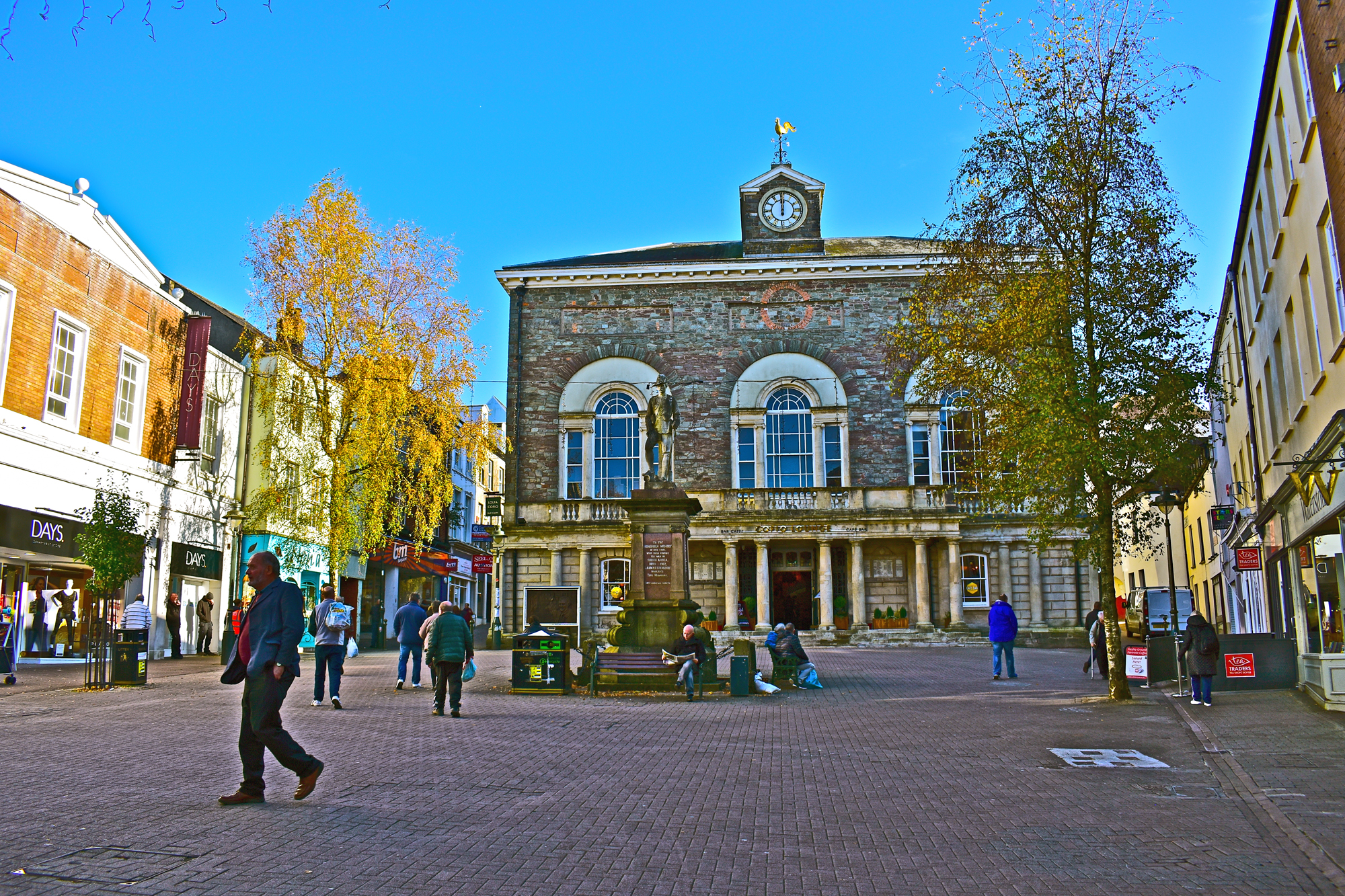
The group works closely with individuals and families to reduce barriers and build confidence — whether through education guidance, wellbeing support, advocacy, or help navigating local services. Leaders say the grant will allow them to respond more quickly to growing demand and keep sessions welcoming, accessible and consistent.
A CANDO spokesperson said: “This grant is amazing news for our community. Neurodivergent people can face extra pressures — from isolation and anxiety to difficulties being understood in education and services. This support will help us reach more people, provide practical help, and keep showing up for those who need someone on their side.”
Nacro’s wider mission mirrors that approach. The charity works across education, housing, justice, health and wellbeing, providing tailored support to help people build independence and move forward. Alongside frontline services, it also campaigns to remove systemic barriers and give disadvantaged people a stronger voice.
For CANDO, that bigger picture is felt locally. Families often face complicated pathways, long waits and fragmented services, and need clear guidance and community-based help that understands neurodiversity. By intervening early — before challenges escalate — the group believes it can improve mental health, education outcomes and overall wellbeing.
The £1,000 grant will fund additional outreach, materials and practical resources, helping more people feel safer, more confident and better equipped to move forward.
CANDO added: “We’re proud to work alongside Nacro’s vision of a society where everyone has the chance to succeed. This funding will do real good — right here in Carmarthen and beyond — and we’re grateful for the belief it shows in our community.”
-

 Health6 days ago
Health6 days agoHealth board targets rise in steroid and gym drug use across west Wales
-

 Crime7 days ago
Crime7 days agoSex offender jailed after living off grid in Pembrokeshire and refusing to register
-

 Crime6 days ago
Crime6 days agoTeacher injured and teenager arrested for attempted murder at Milford Haven School
-

 Business2 days ago
Business2 days agoComputer Solutions Wales under fire from customers
-

 Business5 days ago
Business5 days agoSix-figure negligence victory leaves retired builder trapped in divorce limbo
-

 Crime7 days ago
Crime7 days agoJohnston man remanded in custody over knife and assault charges
-

 News6 days ago
News6 days agoReform appoints Dan Thomas to lead party in Wales
-

 Crime7 days ago
Crime7 days agoProvisional licence holder admits drink-driving through town centre







